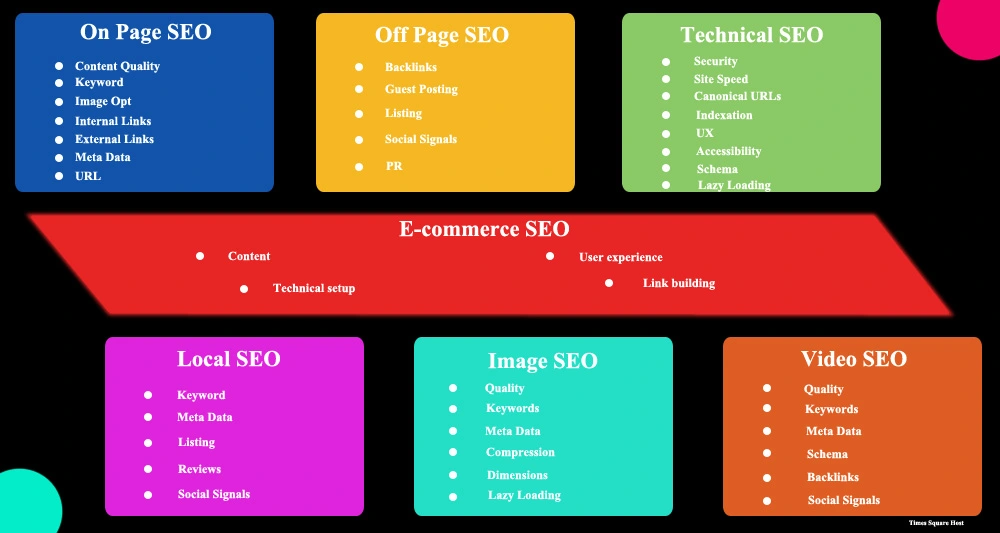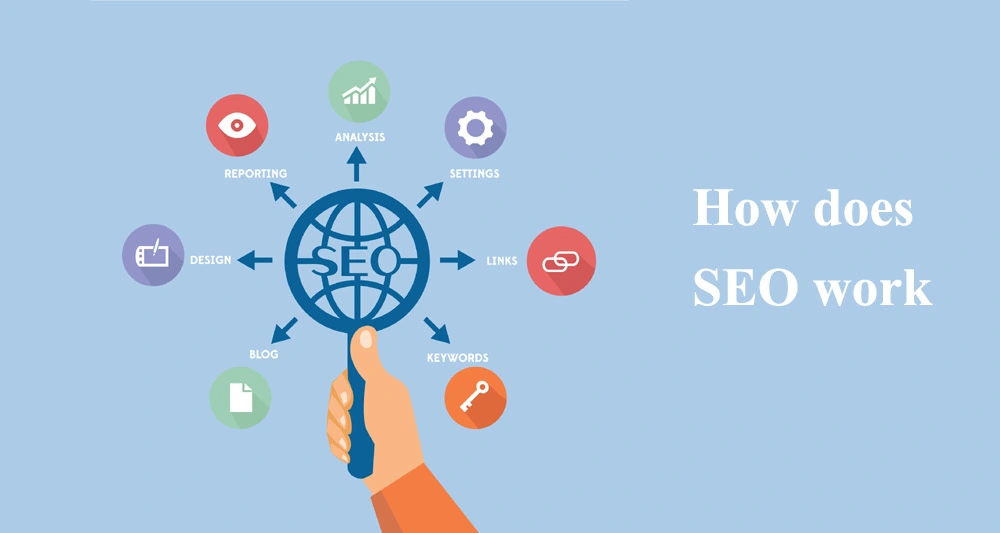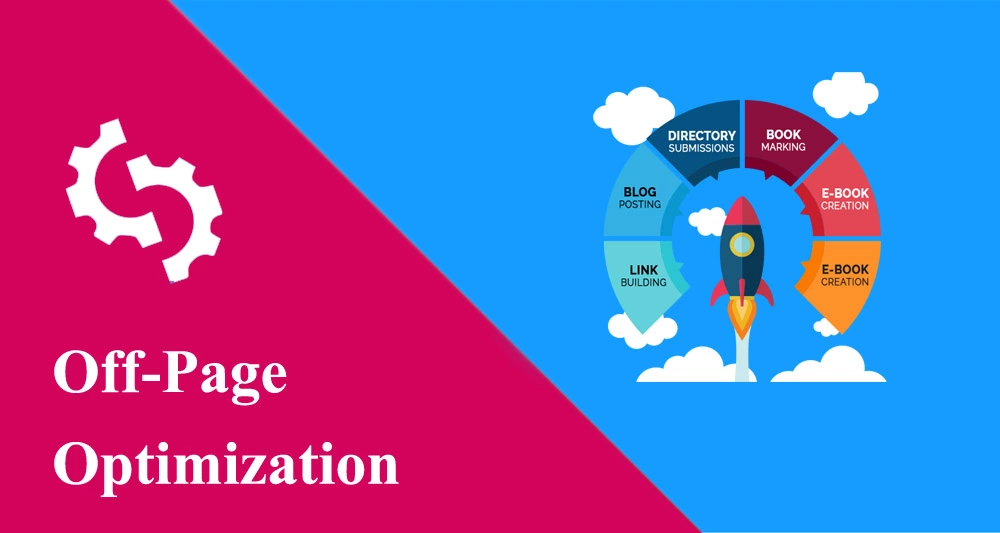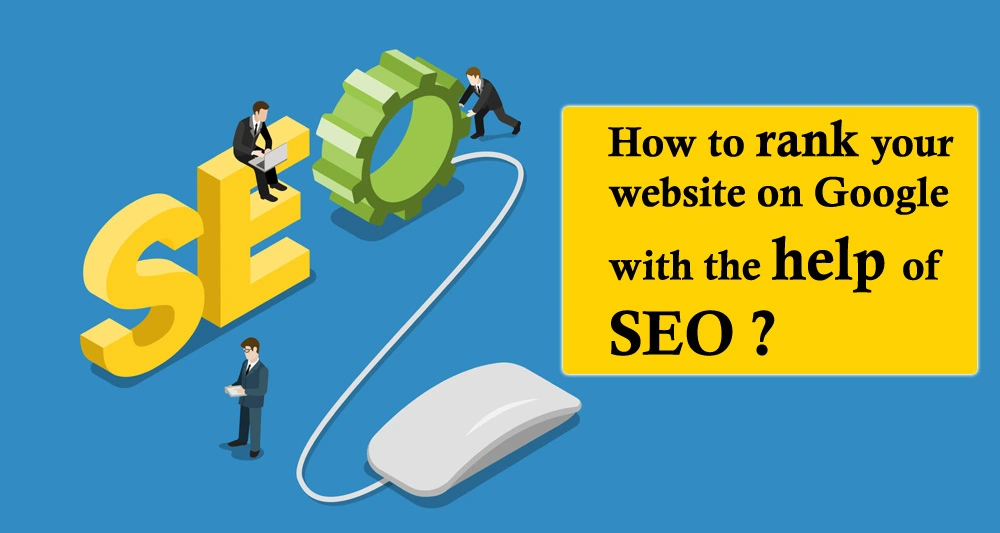What Is Search Engine Optimization (SEO)

Search Engine Optimization (SEO) is the practice of optimizing a website or a piece of content to improve its ranking and visibility in search engine results pages (SERPs). The goal of SEO is to increase organic, non-paid traffic to a website by making it more visible and relevant to search engine users.
SEO involves a variety of techniques, including optimizing website structure and content, using relevant keywords, building high-quality backlinks, and ensuring a positive user experience. The ultimate goal is to make the website appear higher in search engine rankings for relevant search queries, which can lead to more traffic, engagement, and conversions.
There are many factors that influence search engine rankings, including the relevance and quality of content, the speed and usability of the website, the authority and trustworthiness of the website, and the quality and relevance of inbound links. SEO is an ongoing process that requires continuous monitoring and optimization to stay competitive in search engine results.
Types of SEO

There are various types of SEO techniques that can be used to improve a website’s ranking and visibility. Here are some of the most common types:
- On-page SEO: This refers to the optimization of the content and HTML source code of a website. It includes optimizing page titles, meta descriptions, header tags, internal linking, keyword placement, and other factors that affect on-page optimization.
- Off-page SEO: This involves optimizing external factors that can influence the ranking of a website in search engine results pages. Off-page SEO techniques include link building, social media marketing, guest posting, forum posting, and other methods of generating backlinks.
- Technical SEO: This refers to the optimization of a website’s technical aspects, including site speed, mobile-friendliness, crawlability, indexing, schema markup, and other technical factors that can affect a website’s ranking.
- Local SEO: This is focused on optimizing a website for local search queries, such as “restaurants near me” or “plumbers in [city name].” Local SEO techniques include optimizing Google My Business profiles, building local citations, and creating location-specific content.
- E-commerce SEO: This involves optimizing an e-commerce website to improve its visibility and ranking in search engine results pages. E-commerce SEO techniques include optimizing product pages, creating high-quality product descriptions, and optimizing the site’s navigation and user experience.
- Video SEO: This involves optimizing video content to improve its visibility in search engine results pages. Video SEO techniques include optimizing video titles, descriptions, tags, and other metadata to help search engines understand the content of the video.
How does SEO work

The aim of SEO is to increase organic (non-paid) traffic to a website. Search engines like Google use complex algorithms to determine the relevance and authority of web pages, based on a variety of factors such as keywords, backlinks, user engagement, and more. SEO involves optimizing a website’s content and structure to align with these algorithms and improve its ranking in SERPs. Here’s a basic overview of how SEO works:
Keyword Research
Keyword research is an essential part of SEO (Search Engine Optimization) strategy. It involves identifying and analyzing the words and phrases that people use to search for products or services on search engines like Google. Keyword research helps website owners to optimize their website content, structure, and meta tags to target the most relevant and high-traffic keywords.
The following are some of the benefits of keyword research:
- Understanding user intent: Keyword research helps to understand the user’s intent behind their search query. This understanding can help website owners to create more targeted and relevant content that meets the needs of their audience.
- Discovering new keyword opportunities: Keyword research helps to identify new keywords and phrases that website owners may not have considered before. These new opportunities can help to increase the visibility and traffic of a website.
- Analyzing competition: Keyword research helps to identify the keywords that competitors are targeting. This information can help website owners to develop a better SEO strategy and find ways to outrank their competitors.
- Improving search engine ranking: Keyword research helps to optimize website content with relevant and high-traffic keywords, which can improve its search engine ranking and visibility.
- Improving user experience: Keyword research helps to ensure that website content is relevant and valuable to users, improving their overall experience on the website.
On-Page Optimization

On-page optimization refers to the process of optimizing individual web pages in order to improve their ranking and visibility in search engine results pages (SERPs). On-page optimization involves optimizing various elements on a web page such as content, title tags, meta descriptions, header tags, images, internal and external links, and URL structure.
Here are some key factors for effective on-page optimization in SEO:
- Keyword Research: Conducting thorough keyword research and choosing relevant and high-traffic keywords for your web page.
- Content Optimization: Creating high-quality, informative, and engaging content that includes your target keywords in a natural way. Use of headings, subheadings and bullet points can also help to break up content and make it more readable.
- Title Tags and Meta Descriptions: Optimizing the title tags and meta descriptions of your web page to include your target keywords and create an enticing summary that encourages clicks.
- Image Optimization: Optimizing images on your web page by reducing their file size, adding descriptive alt tags and file names, and using appropriate image formats.
- Internal Linking: Linking to other relevant pages on your website within your content can improve the user experience and help search engines understand the structure of your website.
- External Linking: Linking to reputable sources from within your content can help to increase the credibility of your content.
- URL Structure: Creating clean and descriptive URLs that include your target keywords.
- Mobile Responsiveness: Ensuring your web page is mobile-friendly and easy to navigate on different devices.
Off Page Optimization

Off-page optimization is an essential part of Search Engine Optimization (SEO). It refers to the activities that you do outside of your website to improve its ranking in search engines.
Off-page optimization includes various techniques, including link building, social media marketing, content marketing, influencer outreach, and guest blogging. These techniques help to build the authority and credibility of your website in the eyes of search engines like Google.
Here are some of the important off-page optimization techniques that you can use to improve your website’s search engine rankings:
- Link building: Acquiring high-quality backlinks from other websites is a crucial off-page optimization technique. You can earn links by creating high-quality content, participating in guest blogging, and reaching out to other websites for backlinks.
- Social media marketing: Promoting your website on social media platforms like Facebook, Twitter, and LinkedIn can help to increase brand awareness and drive traffic to your site.
- Content marketing: Creating high-quality, engaging content that other websites want to link to is an important off-page optimization technique. This can include creating infographics, videos, and blog posts.
- Influencer outreach: Partnering with influential people in your industry can help to increase your website’s exposure and drive traffic to your site.
- Guest blogging: Publishing guest posts on other websites can help to build your authority and drive traffic to your site.
- Forum participation: Engaging in discussions on forums related to your industry can help to build your authority and drive traffic to your site.
Monitoring and Adjusting
Monitoring and adjusting your SEO strategy is essential to maintaining and improving your website’s search engine rankings and driving traffic to your site.
Here are some key steps for monitoring and adjusting your SEO strategy:
- Monitor your website’s performance
Use tools like Google Analytics and Google Search Console to track your website’s performance, including traffic, rankings, and click-through rates. Identify areas where you are underperforming and areas where you are doing well.
- Monitor your competitors
Keep an eye on your competitors’ SEO strategies to see what keywords they are targeting, what content they are creating, and what tactics they are using to improve their search engine rankings.
- Conduct regular keyword research
Identify new keywords that you can target to drive more traffic to your website. Use tools like Google Keyword Planner, Ahrefs, and SEMrush to find new keyword opportunities.
- Analyze your content
Ensure that your content is relevant, high-quality, and optimized for your target keywords. Use tools like Yoast SEO or SEMrush to analyze your content and identify areas for improvement.
- Optimize your website structure
Make sure your website is well-structured, easy to navigate, and mobile-friendly. Use tools like Google PageSpeed Insights and GTmetrix to identify areas where you can improve your website’s speed and performance.
- Build high-quality backlinks
Build high-quality backlinks to your website to improve your search engine rankings. Focus on building links from reputable websites and use tools like Ahrefs to identify new link-building opportunities.
- Stay up-to-date with SEO best practices
Stay up-to-date with the latest SEO best practices and algorithm updates to ensure that your website remains optimized for search engines.
How do beginners do SEO
There are some basic steps you can take to get started. Here are some tips for beginners:
- Research keywords: Start by researching relevant keywords that people use to search for your products or services. You can use tools like Google Keyword Planner or SEMrush to find popular keywords.
- Optimize on-page content: Ensure that your website’s pages have high-quality content that includes your target keywords. Optimize your titles, descriptions, headings, and image alt text to include your keywords.
- Build high-quality backlinks: Getting links from other high-quality websites can boost your search engine rankings. Reach out to other websites in your industry and ask for a link back to your site.
- Use social media: Social media platforms like Facebook, Twitter, and LinkedIn can help drive traffic to your website. Make sure to share your content and engage with your audience.
- Monitor your progress: Keep track of your search engine rankings and website traffic to see how your SEO efforts are paying off. Use tools like Google Analytics or Moz to monitor your progress.
Remember that SEO is a long-term process, and it takes time to see results. Focus on providing high-quality content that meets the needs of your audience, and continue to optimize your website for search engines.
Why is SEO important
SEO (Search Engine Optimization) is important for several reasons:
- Increased visibility: SEO helps to improve the visibility of a website in search engine results pages (SERPs). When a website is optimized for SEO, it is more likely to appear at the top of search results, which means that more people will see and click on the website.
- More traffic: With increased visibility comes increased traffic. When a website appears at the top of search results, it is more likely to be clicked on, which means that more people will visit the site.
- Better user experience: SEO involves optimizing a website’s content and structure to make it more user-friendly. This can include improving site speed, making the site mobile-friendly, and providing high-quality content that meets the needs of users. All of these factors contribute to a better user experience, which can result in increased engagement and conversions.
- Increased credibility: When a website appears at the top of search results, it is seen as more credible and trustworthy by users. This can lead to increased brand awareness and a positive reputation for the business.
- Long-term benefits: SEO is not a quick fix, but rather a long-term strategy that can provide ongoing benefits. Once a website is optimized for SEO, it can continue to rank well in search results for months or even years, providing ongoing traffic and business opportunities.
Technical optimization
Technical optimization refers to the process of improving the technical aspects of a website to enhance its visibility and performance in search engines. This includes a range of techniques and practices aimed at improving the website’s speed, responsiveness, security, accessibility, and user experience.
Some of the key technical optimization strategies include optimizing the website’s code, reducing page load times, improving server response times, compressing files, leveraging caching techniques, implementing responsive design, optimizing images and videos, using structured data, improving website security, and ensuring that the website is accessible to users with disabilities.
Technical optimization is an essential aspect of search engine optimization (SEO) as it can significantly impact a website’s visibility and ranking in search engine results pages (SERPs). By ensuring that a website is technically optimized, website owners can improve their chances of being found by their target audience and increase the likelihood of achieving their business objectives.
Content optimization
Content optimization refers to the process of improving the quality and effectiveness of content to make it more visible, engaging, and useful to the target audience. It involves various techniques and strategies to enhance the content’s relevance, readability, structure, and format to align with the user’s search intent and preferences.
Some key aspects of content optimization include:
- Keyword research: Identifying the most relevant and profitable keywords and phrases that the audience uses to search for the content.
- Content planning: Developing a content strategy that aligns with the audience’s needs, interests, and pain points and maps out the topics, formats, and channels to target.
- Content creation: Producing high-quality, original, and valuable content that addresses the audience’s questions, problems, and aspirations.
- On-page optimization: Optimizing the content’s meta titles, descriptions, headings, images, internal links, and other elements to enhance its visibility, clickability, and relevance to search engines.
- Off-page optimization: Building quality backlinks and social signals that indicate the content’s authority, popularity, and relevance to the industry and the audience.
- Analytics and testing: Measuring and analyzing the content’s performance and user behavior through tools like Google Analytics, A/B testing, and heat maps, and refining the content accordingly.
Benefits & importance of SEO
Here are some of the benefits and importance of SEO:
- Increased visibility and traffic: SEO can help increase the visibility of your website in search engine results pages, which can result in more traffic to your site.
- Higher search engine ranking: By optimizing your website and content for search engines, you can improve your search engine ranking, which can lead to more traffic and more business.
- Better user experience: SEO involves optimizing your website to make it easier for users to navigate and find what they are looking for, which can result in a better user experience.
- Cost-effective: Compared to other forms of online marketing, such as pay-per-click advertising, SEO can be a cost-effective way to drive traffic to your website.
- Long-term benefits: While it may take some time to see the results of SEO efforts, the benefits can be long-lasting. Unlike paid advertising, which stops delivering results as soon as you stop paying, SEO can continue to deliver traffic and business for months or even years after the initial investment.
SEO ranking factors on Google
Here are some key factors that can impact your website’s search engine rankings on Google:
- Content quality and relevance: Google values high-quality, original, and relevant content that satisfies the user’s search intent. Your content should be informative, engaging, and easy to read.
- Backlinks: Having high-quality links from authoritative websites can help improve your website’s authority and ranking. The links should be relevant and come from trustworthy sources.
- Page speed and mobile-friendliness: Google prioritizes websites that load quickly and are optimized for mobile devices. This means your website should be fast, easy to navigate, and responsive on mobile devices.
- User experience: User experience (UX) is an important factor in determining search engine rankings. Google considers factors such as bounce rate, time spent on site, and click-through rate (CTR) when evaluating the user experience.
- Keyword optimization: Keywords still play a significant role in SEO, but it’s important to use them naturally and not overstuff your content. Use relevant keywords in your titles, headers, and meta descriptions, but make sure your content flows naturally.
- Technical SEO: Technical SEO refers to the backend elements of your website that impact search engine rankings, such as sitemap, robots.txt, and structured data. Ensuring these elements are optimized can help improve your website’s search engine rankings.
The role of SEO
The role of SEO is to help businesses and website owners attract more organic traffic to their website through improved search engine visibility.
SEO plays a critical role in the digital marketing ecosystem. Here are some of the ways that SEO can benefit a website and its owner:
- Increased visibility: A website that is optimized for search engines will rank higher in search engine results pages, resulting in increased visibility and traffic.
- Improved user experience: SEO involves optimizing the website’s design, content, and structure, which can enhance the user experience and make it easier for visitors to navigate the site.
- Better brand credibility: A high ranking on search engines can improve a website’s credibility and brand authority in the eyes of potential customers.
- Increased engagement: Optimized websites with high-quality content can lead to more engagement and user interactions, such as comments, shares, and likes.
- Cost-effective: SEO can be a cost-effective marketing strategy, as it does not require paid advertising and can generate organic traffic over time.
Conclusion
The goal of SEO is to improve your website’s visibility and attract more traffic, which can lead to increased conversions and revenue. By understanding how search engines work and what factors influence their algorithms, you can create a website that is optimized for both search engines and users.





















+ There are no comments
Add yours